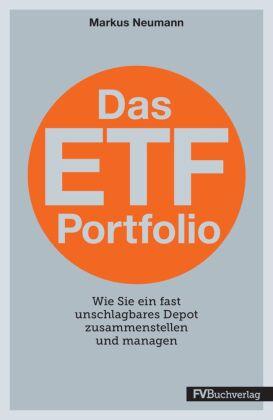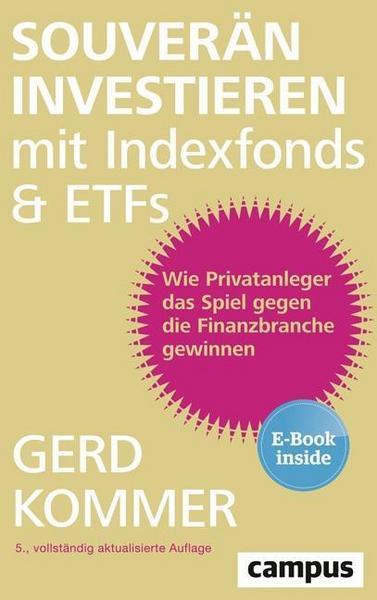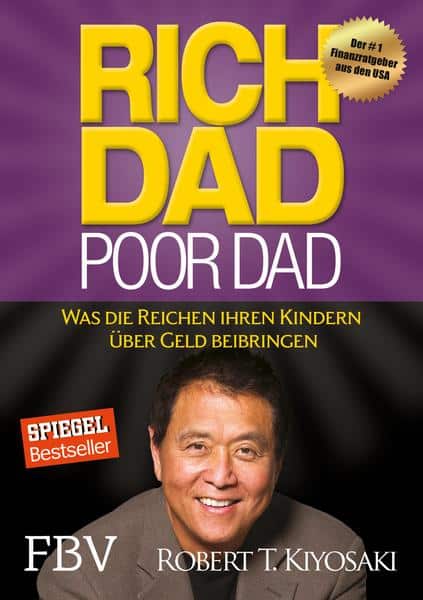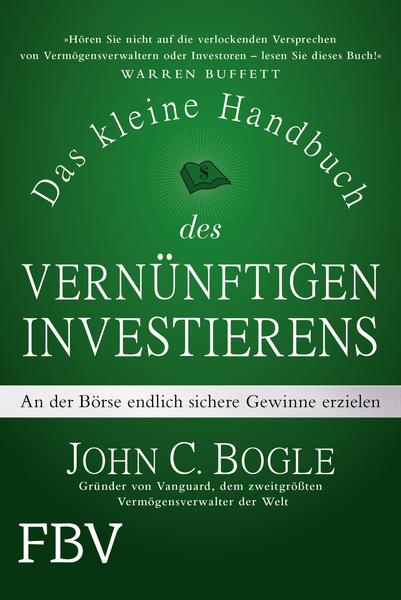The only book you should read about finance: The Relaxed Way to Wealth
If you find out about investing on the Internet, you have probably stumbled across the YouTube channel or the website “Finanzfluss” several times.
With this book, the team around Thomas Kehl has now published an easy-to-read “empowerment program […] in wealth accumulation for everyone – understandable, motivating and above all effective!”.
The handy book is especially suitable for beginners who have not yet dared to invest. Not everything can be implemented 1:1 in Switzerland, but that’s what Swiss finance blogs are for.
Have you already gained some experience in the stock market? You will learn little new in it. Whereby certain anecdotes of Thomas are not uninteresting.

Der Finanzwesir – What you really need to know about wealth accumulation
Albert Warnecke first addresses the question of why you should take care of your money yourself in the first place and how to do it with reasonable effort and return. He then presents a financial vizier manifesto and explains its three rules.
Alongside Gerd Kommer, Finanzwesir is one of the German-language ETF popes, although he has recently moved in a somewhat different direction. Nevertheless, his book is well worth reading. Because in it he teaches the basics of independent investing in an entertaining (matter of taste), practical and informative way. The book reads easily and is also very suitable for beginners. Minus points are awarded for the sparse graphics, which unfortunately look stale and cheap.

On the greed, fear and herd instinct of investors
The Swiss asset manager Pirmin Hotz has an extremely entertaining chat out of the closet. In the process, you learn a lot about investor mistakes and which pitfalls are better avoided when building up wealth over the long term. The subtitle of the book is then also: “Which investment strategies are really recommended and how to invest your money reliably”.
He backs up his statements with empirical data and manages to explain complicated content in an understandable way. The book reads easily and is also suitable as vacation reading for investors who have already had their first taste of the stock market.
You will not be served a pan-structured depot while reading. Instead, the pointed opinion of an old hand on stock market gurus, private equity, hedging strategies, infrastructure investments and structured products. Spoiler: He doesn’t think much of all this.

The ETF Portfolio: How to build and manage an almost unbeatable portfolio
The MSCI World has too much cluster risk for you? Want to diversify more broadly and construct a “robust ETF portfolio”? Then this book could help you.
The author Markus Neumann is a financial journalist and publisher of the very readable online investor magazine Fairvalue. His “unbeatable portfolio” is derived from the findings of current financial market research and his own calculations.
He also discusses the systematic selection of ETFs. So which ETF to choose when there are multiple ETFs on the same index and why sustainable ETFs are not particularly sustainable.
For beginners, the book might be too data-, statistics-, and numbers-focused. A must for anyone who has been involved with ETFs for a bit longer.

Investing confidently with index funds and ETFs
My very first book that I read on the subject of finance. Dr. Gerd Kommer ‘s book has become the standard work for private investors who invest in ETFs or index funds.
It explains the basics of passive investing and gives you theoretical background on passive investing with many examples and studies. According to the motto: long-term, scientific, broadly diversified, without gambling.
Sometimes Gerd Kommer writes very scientifically and for absolute beginners who have never dealt with investing before, the book might be a bit too complicated. Highly recommended as an in-depth study, jumping in at the deep end, or reference book.

Rich Dad Poor Dad
Although many financial blogs, financial podcasts and financial YouTube channels recommend the book “Rich Dad Poor Dad” by Robert T. Kiyosaki and some even call it a turning point on the way to becoming an investor, a mindset guiding star – I can’t do anything with it at all.
Kiyosaki is a modern itinerant preacher with a very American view of the world. His page-long ramblings can be summarized in one sentence: Invest – as the rich do – in assets that generate a positive cash flow.
The rest is platitudes, repetition and sob stories on a Rosamunde Pilcher level.
You disagree? Wonderful, then use the comment function below.

The little handbook of sensible investing
Doesn’t sound sexy, but following his advice will save you unnecessary fees and nerves. The book is more commonly known by its English title, “Little Book of Common Sense Investing.” It was written by Vanguard Group founder and longtime leader John C. Bogle. He is also known as the “father” of the index fund.
In this book you will learn why actively managed funds very rarely beat the index over a longer period of time and why you should not look for a needle in a haystack, but rather buy the entire haystack.
This book also focuses mainly on the US market. However, there are enough universal recommendations. For example, you don’t control the return on your investments, but you can control the cost of your investments.
When I bought the book, the German translation did not yet exist. Unfortunately, the translations – especially of financial books – are sometimes atrocious. If someone has the German version, please rate it in the comments – best thanks.

Transparency and disclaimer
I was not paid by anyone for this blog post, it reflects my subjective opinion.
If you open accounts or business relationships, order products or services through my links and codes, I may receive a commission for doing so. However, you will not suffer any disadvantages such as higher prices or the like. The terms and conditions of the respective providers apply. Affiliate links are marked with a *.
Investments are associated with risks which, in the worst case, can lead to the loss of the capital invested.
All publications, i.e. reports, presentations, notices as well as contributions to blogs on this website (“Publications”) are for information purposes only and do not constitute a trading recommendation with regard to the purchase or sale of securities. The publications merely reflect my opinion. Despite careful research, I do not guarantee the accuracy, completeness and timeliness of the information contained in the publications.







